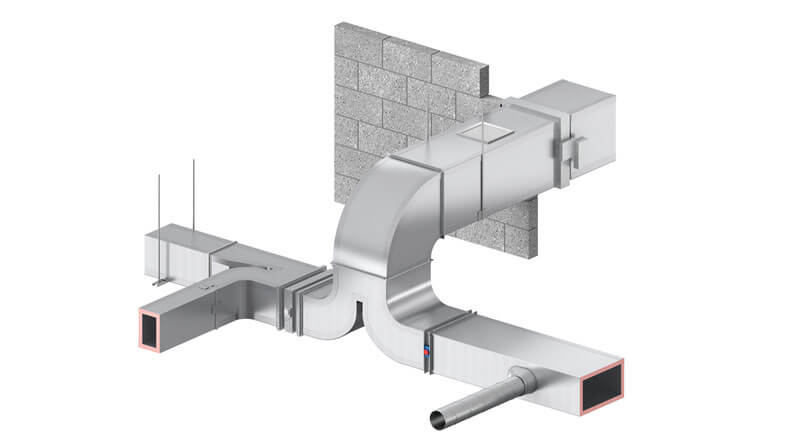As the global population ages, Senior Care Solutions are rapidly evolving to address the needs of older adults. The field has seen remarkable advancements, incorporating technology, personalized care approaches, and innovative wellness practices that allow seniors to maintain independence, enjoy a higher quality of life, and stay connected with loved ones. These solutions are designed not just to provide basic support but to promote active, fulfilling lifestyles that enhance physical, mental, and emotional well-being.
In this post, we’ll explore some of the latest trends in Senior Care Solutions that are revolutionizing how we think about elder care.
1. Remote Health Monitoring for Proactive Care
One of the most impactful trends in senior care is the use of remote health monitoring. Devices such as wearables and in-home health systems allow seniors to monitor critical health metrics like heart rate, oxygen levels, and blood pressure. These systems can provide alerts to caregivers and healthcare providers when a concerning change occurs.
- Remote monitoring supports proactive care, helping prevent severe health issues before they arise.
- Seniors can maintain a level of independence while still being under the watchful eye of caregivers and medical professionals.
This trend is particularly beneficial for seniors with chronic conditions who need regular monitoring but may not require constant in-person care.
2. Smart Home Technologies for Enhanced Safety and Convenience
Smart home technologies have become a popular addition to Senior Care Solutions, offering a layer of safety and convenience that supports independent living. Through automated lighting, voice-activated assistants, and security systems, seniors can navigate their homes more safely and perform daily tasks more easily.
Smart home devices can be customized for each senior’s needs, allowing them to control temperature, lighting, and even reminders for medications through a voice command or smartphone. These technologies minimize the risk of accidents, such as falls, and provide peace of mind for both seniors and their families.
3. Telemedicine Services for Accessible Healthcare
Telemedicine has gained significant traction, especially for seniors who may have mobility issues or live in remote areas. Through virtual consultations, seniors can connect with healthcare professionals without the need to travel, making healthcare more accessible.
Telemedicine provides seniors with timely access to medical advice, routine check-ups, and even specialist consultations. This approach to healthcare can be essential for managing chronic illnesses, conducting follow-up care, and offering mental health support from the comfort of home.
4. Social Engagement Platforms to Combat Loneliness
Social isolation is a significant concern for many seniors, particularly those living alone. Senior care providers are now offering online social engagement platforms that help seniors connect with family, friends, and even peers with similar interests. These platforms may include virtual book clubs, fitness classes, and community events that are accessible online.
By offering ways to stay socially connected, these solutions reduce feelings of loneliness and improve mental health. Social engagement is a key factor in aging well, and with virtual tools, seniors can maintain meaningful connections regardless of physical distance.
5. Nutrition and Meal Delivery Services for Balanced Diets
Proper nutrition plays a pivotal role in senior health, and many seniors struggle to maintain a balanced diet due to various factors. Senior care solutions now often include meal planning and delivery services that cater to dietary restrictions and preferences.
These services ensure seniors receive nutritious meals without the hassle of grocery shopping or cooking. Many programs also include consultations with dietitians to customize meal plans, ensuring that seniors get the nutrients they need to stay healthy and energized.
6. Mental Health Support Programs and Counseling
Mental health care has become a fundamental component of comprehensive senior care. Senior care solutions are increasingly providing access to mental health resources, including therapy and counseling services tailored for older adults. These services address issues such as depression, anxiety, and grief, which can be prevalent in senior populations.
Counseling sessions can be conducted in person or online, depending on the senior’s preference and mobility. This support contributes significantly to emotional wellness, helping seniors cope with the challenges of aging in a constructive, supportive way.
7. Mobility and Transportation Services for Independence
Mobility limitations can affect a senior’s ability to engage in social activities or complete essential tasks. Many senior care providers now include specialized transportation services designed to support the unique needs of older adults, offering accessible and convenient transport to appointments, family visits, and community events.
These transportation services not only promote independence but also enable seniors to participate more fully in their communities. This approach helps prevent isolation and supports a more active lifestyle.
8. Cognitive Engagement Programs for Mental Sharpness
Staying cognitively active is crucial for seniors, as it can delay or even prevent cognitive decline. Senior care solutions now include a variety of cognitive engagement programs, such as puzzle games, memory exercises, and even virtual reality experiences, to keep the mind sharp.
Engagement programs are accessible both in person and online, allowing seniors to choose activities that fit their interests and cognitive needs. These programs provide mental stimulation and, in some cases, can be personalized based on the senior’s cognitive abilities and goals.
Conclusion
The landscape of Senior Care Solutions continues to expand, incorporating innovative approaches that make aging a more positive and empowering experience. By addressing various aspects of seniors’ physical, mental, and social well-being, these solutions create a comprehensive support system for older adults. As technology advances, we can expect even more dynamic and effective senior care solutions that prioritize quality of life, dignity, and independence. Embracing these trends offers an opportunity to support aging populations in a way that respects their individuality and needs, transforming senior care for the better.
Read More: private home care for seniors


